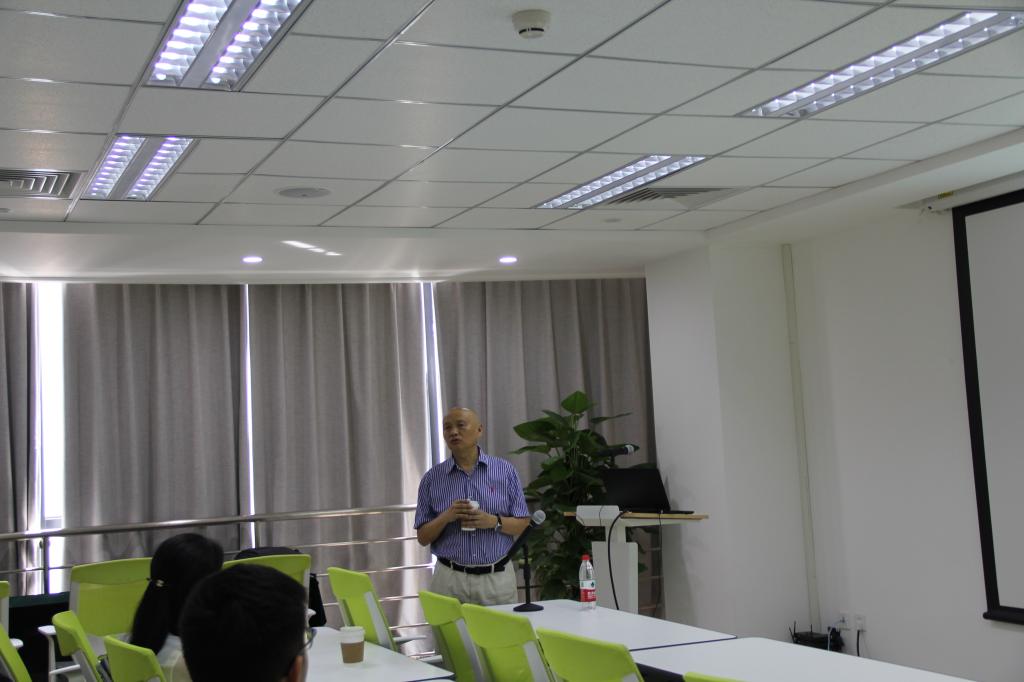
第二语言习得理论与研究专题工作坊(Workshop: Second Language Acquisition (SLA) Theories and Research)将于2019年6月在北京语言大学开工,本次工作坊由语言认知科学学科创新引智中心主办,特邀美国爱荷华大学柯传仁教授作为主讲嘉宾,分为5个主题介绍第二语言习得领域的最新进展。现诚邀各位师生参与本次工作坊,共同开展学术交流与合作。
主讲专家
柯传仁教授(美国爱荷华大学)
时间
2019年6月6日、11日、13日、18日、20日
14:00-16:00
地点
北京语言大学综合楼1125-1127报告厅
主办单位
北京语言大学语言认知科学学科创新引智中心
日程安排
2019年6月6日(周四)14:00-16:00
主题:Research into SLA from Usage-Based and Sociocultural Perspectives
2019年6月11日(周二)14:00-16:00
主题:Research into SLA from Interactionists and Motivation Perspectives
2019年6月13日(周四)14:00-16:00
主题:Age Effects on Second Language Learning
2019年6月18日(周二)14:00-16:00
主题:Cognitive Theory and Second Language Instruction
2019年6月20日(周四)14:00-16:00
主题:A Transdisciplinary Framework for SLA in a Multilingual World
内容提要
The first three presentations will be devoted toresearch into second language acquisition (SLA) from cognitive-interactionist (Gass & Mackey, 2015), usage-based (Tomasello, 2003, 2009, 2009; N. Ellis & Wulff, 2015), and sociocultural (Lantolf, Thorne, & Poehner, 2015) theoretical perspectives. We will examine universal, individual, and social sources of influence on the learning of additional languages later in life – that is, during adulthood or late adolescence. These include age (Ortega, 2016), crosslinguistic influence, the linguistic environment, cognition, individual sources of variation (including aptitude, motivation (Ortega, 2016), and affect), and the present social reorientation of SLA that points at the bridging of social and cognitive dimensions of language learning (Atkinson, 2011). Major constructs for each of the selected theoretical perspectives as well their operationalization and exemplary (Chinese) SLA studies will be examined. The presentations will conclude on howmajor SLA theories address the systematicity and the variability observed in interlanguage (Ortega, 2015).
The fourth lecture discusses a number of cognitive theories with an eye towards instructional and curriculum practice. Theories covered include Episodic memory (Tulving, 1983, 2002), Transfer-appropriate processing (Goldstein, 2008; Morris, Bransford, & Franks,1977), and Neighborhood activation model (Luce, Pisoni, and Goldinger 1990). Pedagogical implications, particularly those involved with pedagogical grammar and task-based language instruction, will be discussed.
The last talk introduces the article “A transdisciplinary framework for SLA in a multilingual world,”authored by a group of 15 scholars referring to themselves collectively as the Douglas Fir Group (2016). The DFG proposes a new, rethought SLA framework that is transdisciplinary, one that encompasses three interrelated levels of social activity: the micro level of social action and interaction, the meso level of sociocultural institutions and communities, and the macro level of ideological structures (p. 36).
Ten fundamental themes are presented in the DFG framework in connection with the three interrelated levels of social activity:
1. Language competences are complex, dynamic, and holistic.
2. Language learning is semiotic learning.
3. Language learning is situated and attentionally and socially gated.
4. Language learning is multi-modal, embodied, and mediated.
5. Variability and change are at the heart of language learning.
6. Literacy and instruction mediate language learning.
7. Language learning is identity work.
8. Agency and transformative power are means and goals for language learning.
9. Ideologies permeate all levels.
10. Emotion and affect matter at all levels.
A new Chinese SLA study aiming to apply this transdisciplinary frameworkwill be discussed at the presentation.
专家介绍
Chuanren Ke (柯传仁)is Professor in the Department of Asian and Slavic Languages and Literatures at the University of Iowa, USA. He is Director of the University of Iowa Second Language Acquisition PhD Program. He received his PhD in Linguistics and PhD Minor in Psychology at Indiana University at Bloomington. His main area of research is in Chinese second language acquisition, instruction, and assessment in adult classroom settings. ProfessorKe is currently working on a multi-year research project on study abroad supported by the Henry Luce Foundation. He has published widely in journals such as Modern Language Journal, Language Assessment Quarterly, Foreign Language Annals,Chinese as a Second Language,andChinese Teaching in the World. He is editor of The Routledge Handbook of Chinese Second LanguageAcquisition(Routledge, 2018) and lead author of 《汉语口语教学》(北京大学出版社, 2012), 《汉语听力教学》(北京大学出版社, 2009), and Task-Based Language Instruction: Chinese Speaking Class(The Ohio State University Foreign Language Publications, 2004). ProfessorKe has twice (1999-2000; 2010-2011) served as President of The Chinese Language Teachers Association, USA. He is founder and Director of the Confucius Institute at the University of Iowa.